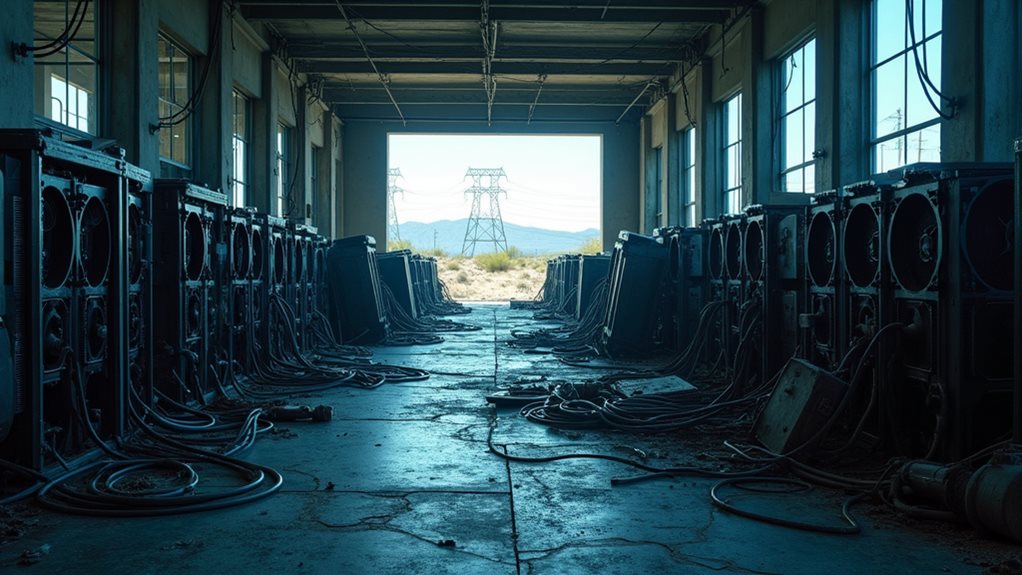Kuwait’s authorities are cracking down hard on crypto mining, with over 1,000 illegal sites in their crosshairs. The government isn’t messing around – they’ve formed a special task force combining Interior and Energy ministries to hunt down unauthorized operations straining the national power grid. While other countries like El Salvador embrace crypto with volcanic mining, Kuwait’s taking a sledgehammer approach. The battle between miners and authorities is just heating up.

Kuwait is cracking down hard on cryptocurrency mining – and they’re not messing around. The country’s authorities have launched a full-scale offensive against crypto miners who’ve been draining the national power grid like teenagers left alone with unlimited pizza money.
The government’s message is crystal clear: shut down those mining rigs, or face the consequences. It’s not just one agency doing the finger-wagging either. The Ministry of Interior has teamed up with the Ministry of Electricity, Water and Renewable Energy, creating a task force that means business. They’re citing violations of everything from penal codes to municipal regulations, and they’ve got the legal firepower to back it up. Authorities have already identified over 1,000 illegal sites conducting unauthorized mining operations across the country.
This isn’t Kuwait‘s first rodeo with crypto restrictions. Back in 2023, the Capital Markets Authority dropped the hammer on crypto-related activities, setting the stage for today’s more aggressive stance. The country’s concerns aren’t exactly unfounded. Their power grid is straining under the weight of all those mining operations, threatening to leave citizens sweating in the dark. The collaborative effort between multiple regulatory bodies aims to ensure strict compliance with existing laws.
Meanwhile, the rest of the world seems to be playing a different game entirely. El Salvador’s over there living its best life, using volcanic energy for state-backed mining farms – talk about a flex. Belarus and Pakistan are figuring out ways to turn surplus electricity into digital gold, while the U.S. is busy rolling out the red carpet for crypto miners with proper regulatory frameworks.
The contrast couldn’t be starker. While some nations are embracing crypto mining as their ticket to the digital future, Kuwait’s basically saying “not in my backyard” – and they’ve got their reasons. The strain on their electrical infrastructure is real, and the threat to public services isn’t just bureaucratic fear-mongering.
It’s a classic case of energy crisis meets digital age, with Kuwait choosing to protect its power grid over joining the crypto mining gold rush. For miners in Kuwait, the message is loud and clear: time to pull the plug.









